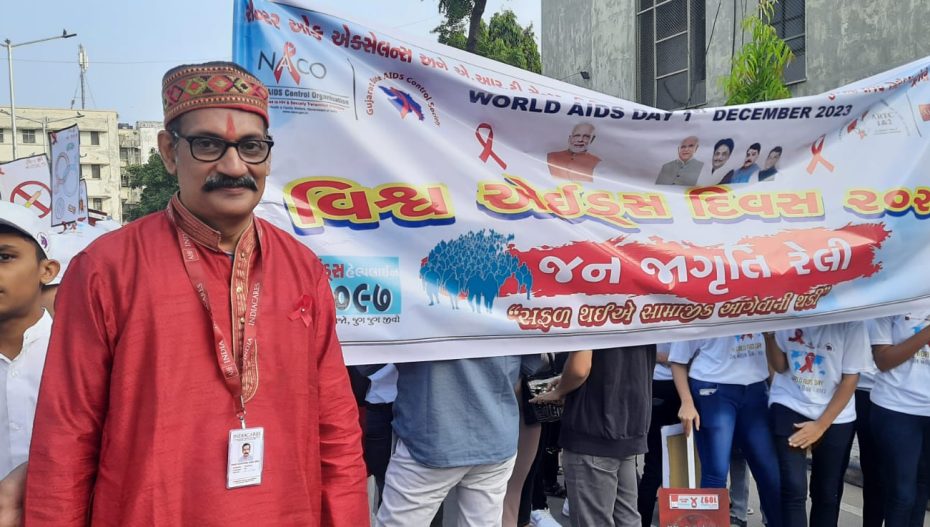A mile long rally, with a band, horse-mounted police and a confluence of religious leaders: Ahmedabad marked World AIDS Day with a big show at the Asarwa Civil Hospital on Friday, December 1. Various NGOs working in the field of AIDS were later felicitated at a function at the hospital’s Ashmita auditorium.
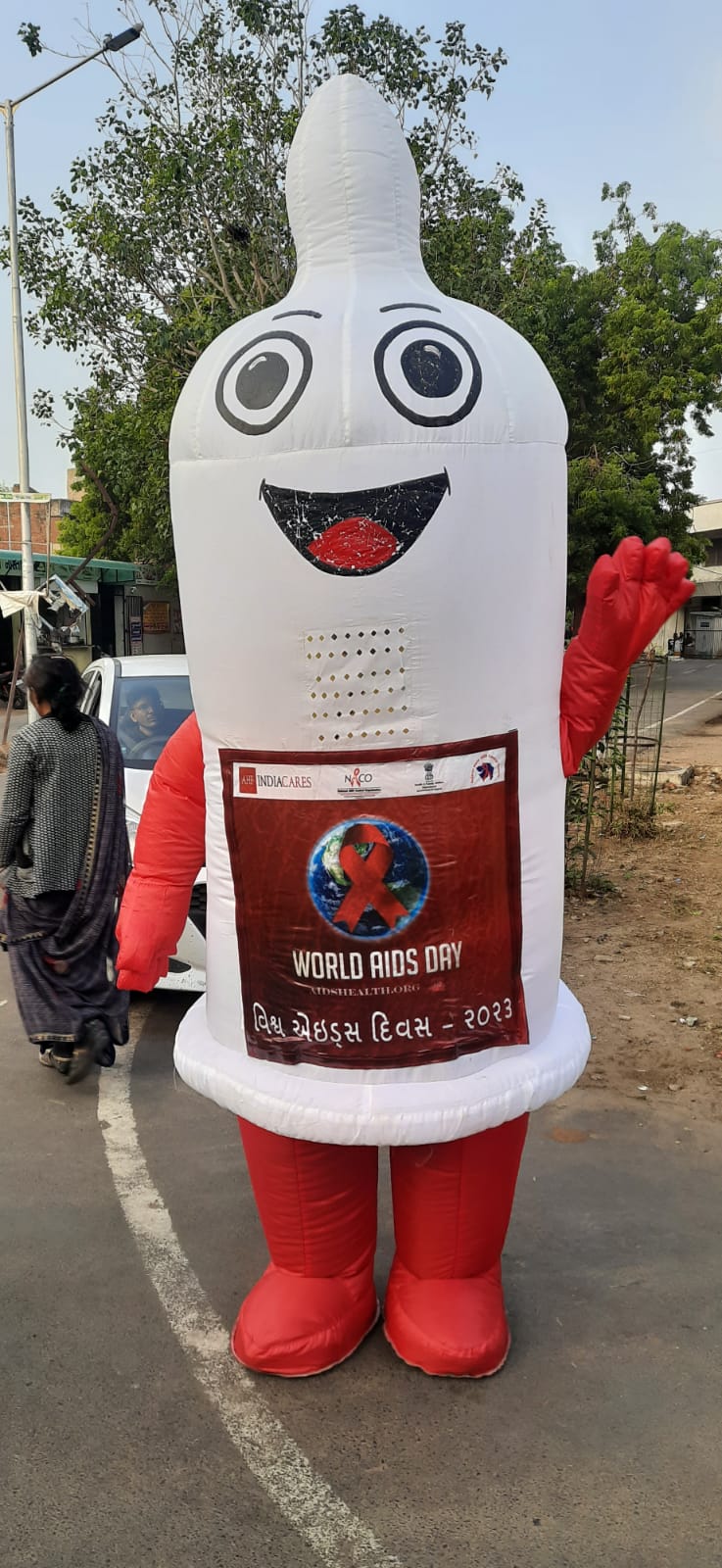
The event was part-sponsored by AIDS Healthcare Foundation (AHF), one the world’s largest organisations working in this field. AHF has organised such AIDS Day rallies in Mumbai, Delhi, Hyderabad and Aizawl in the past. “This is the first time we are organising it in Ahmedabad,” says Manvendra Gohil, the “gay prince of Rajpipla” and AHF’s Brand Ambassador. “With the help of the Gujarat government, it is on a much bigger scale this year. For example, we never had the spectacle of mounted police or the presence of religious leaders before.”
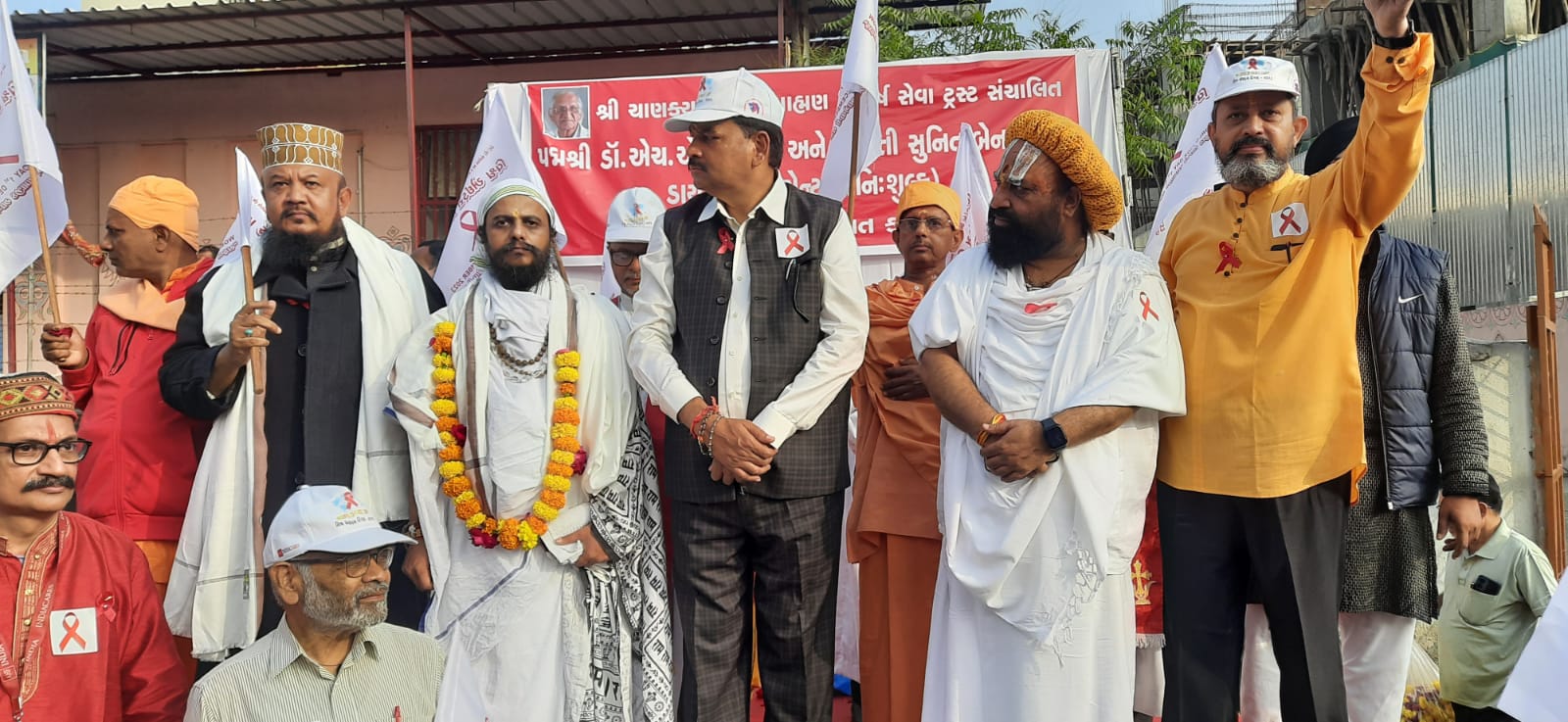
The rally began at 7:30 am, with the procession of NGO volunteers wending its way through the main streets of Asarwa to the accompaniment of tunes from the brass band. Participants included members of the LGBT community, international students studying in Gujarat, doctors, as well as those living with the HIV virus. On the way was a special stage set up for religious leaders of the Hindu, Muslim, Christian, Jain, Parsi and Sikh communities, all showing their solidarity by wearing the red ribbon badge associated with AIDS awareness across the world.
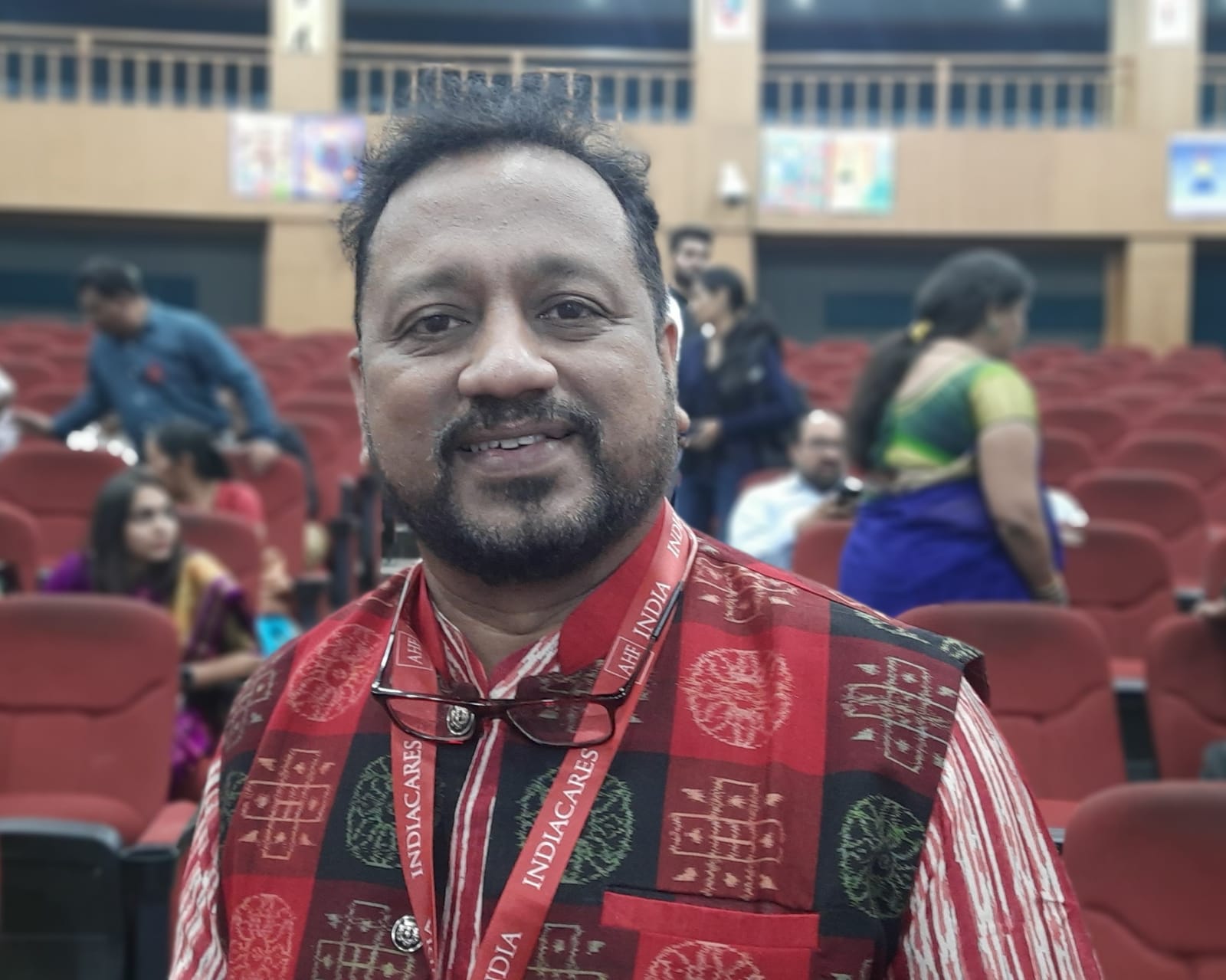
“It is important that we remind the public that the AIDS epidemic is not yet over,” says AHF India Head Dr V Sam Prasad. “India has the third highest number of people with the HIV virus, after South Africa and Nigeria. It is still spreading in the sexually active 15-29 age group, which forms a large chunk of our population. With medicines available, people with HIV now survive and thrive for many years.”
The highest incidence of AIDS in the country is in the state of Mizoram, where as much as 2.5% of the population is estimated to be carrying the virus, compared to the national average of 0.21%. In Gujarat, 7 out of 1 lakh people were estimated to be HIV positive in 2017. This came down to 4 out of one lakh in 2021, when the last survey was undertaken.
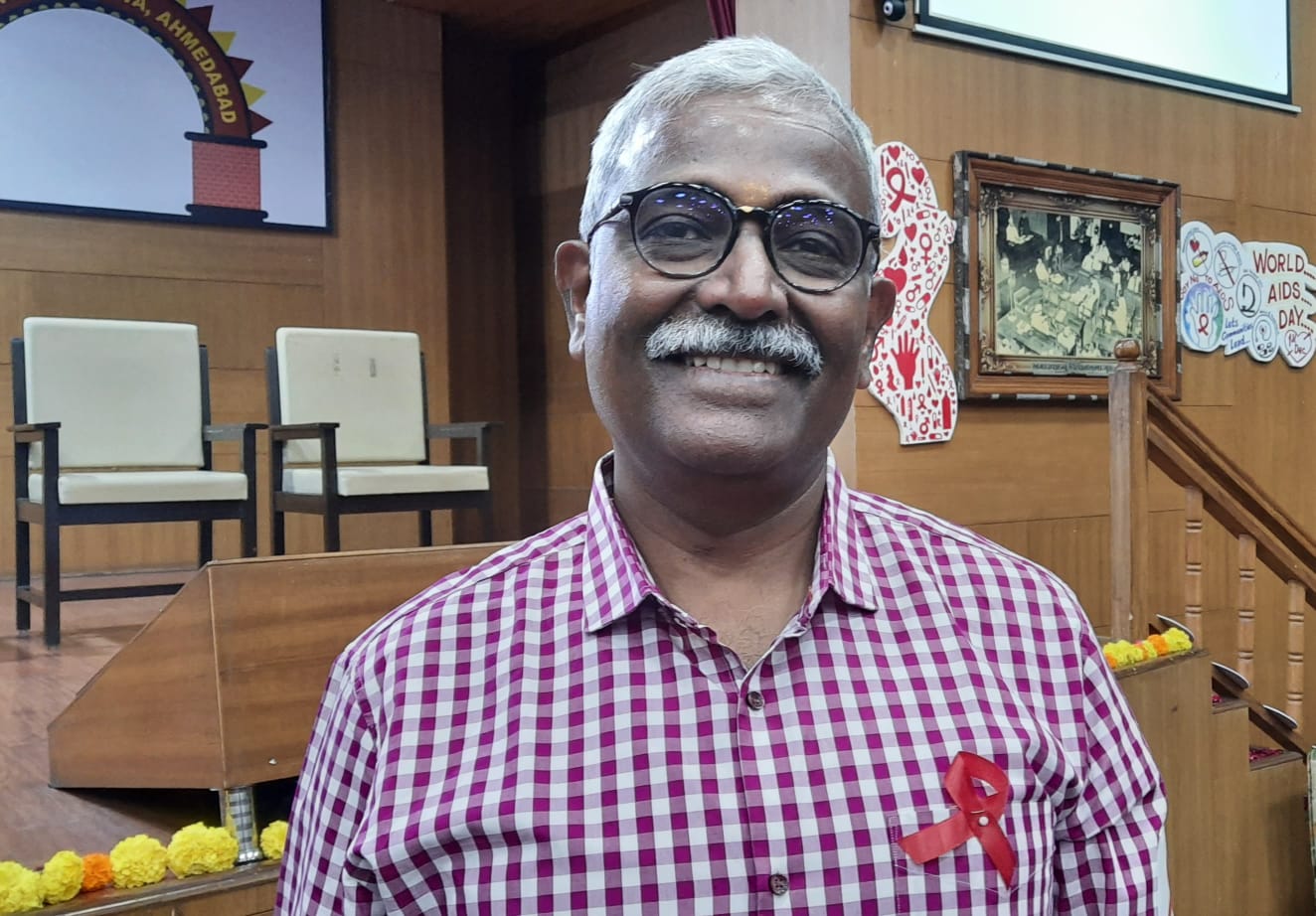
“Targeted interventions through specialised NGOs have yielded results,” says Dr Rajesh Gopal, technical head of Gujarat State AIDS Control Organisation. “We have recently focused on single migrant workers in the cities of Surat, Ahmedabad, Vadodara and Rajkot. They come to the cities not just from other states, but also from rural Gujarat.”
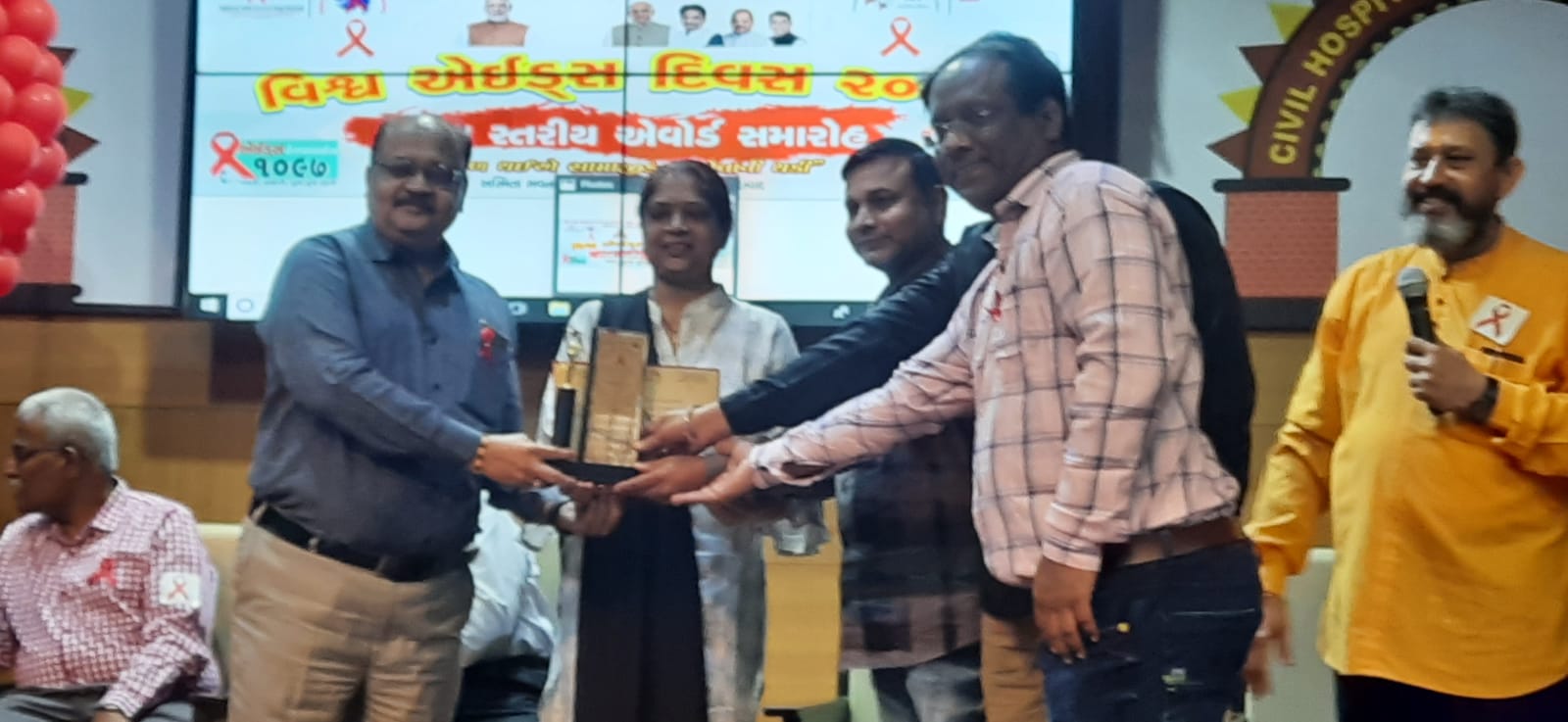
At the function organised at the end of the rally and presided over by Dr Kamlesh Upadhyay, head of the department of medicine at the Civil Hospital, NGOs working with diverse target groups were felicitated with awards. Among these were Sahyog, Sardar Patel Seva Trust of Bhavnagar, Lakshya Trust (which works with the transgender community) as well as Indian Railways and corporates like Reliance and Larsen & Toubro.
Also Read: 44 Bengaluru Schools Receive Bomb Threat, Panic Among Parents



